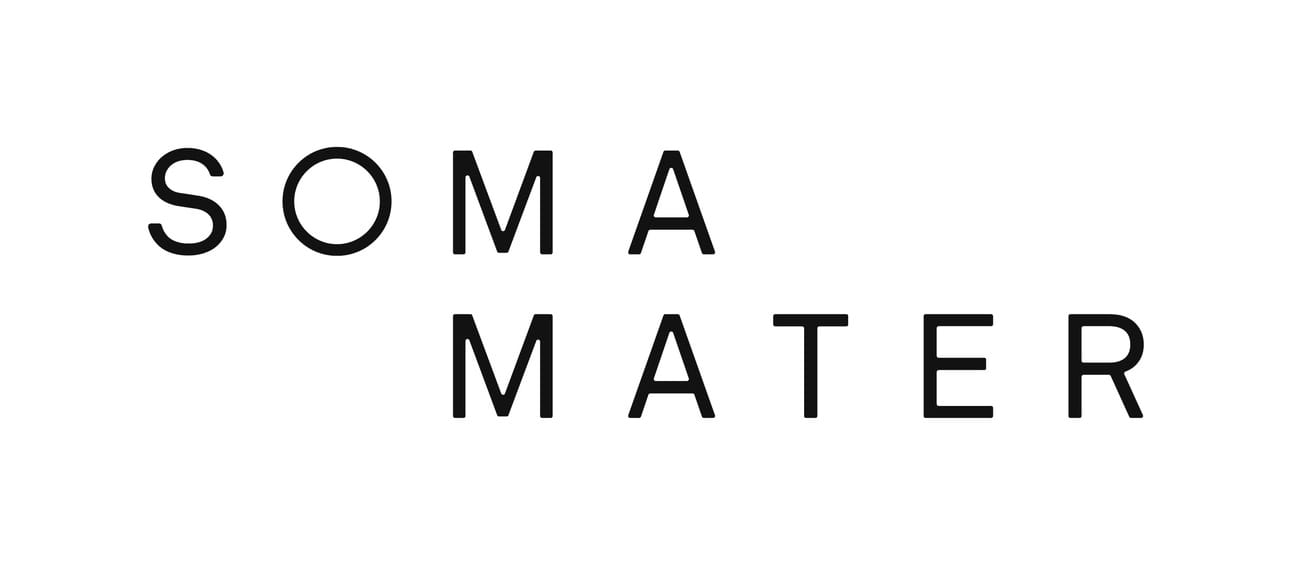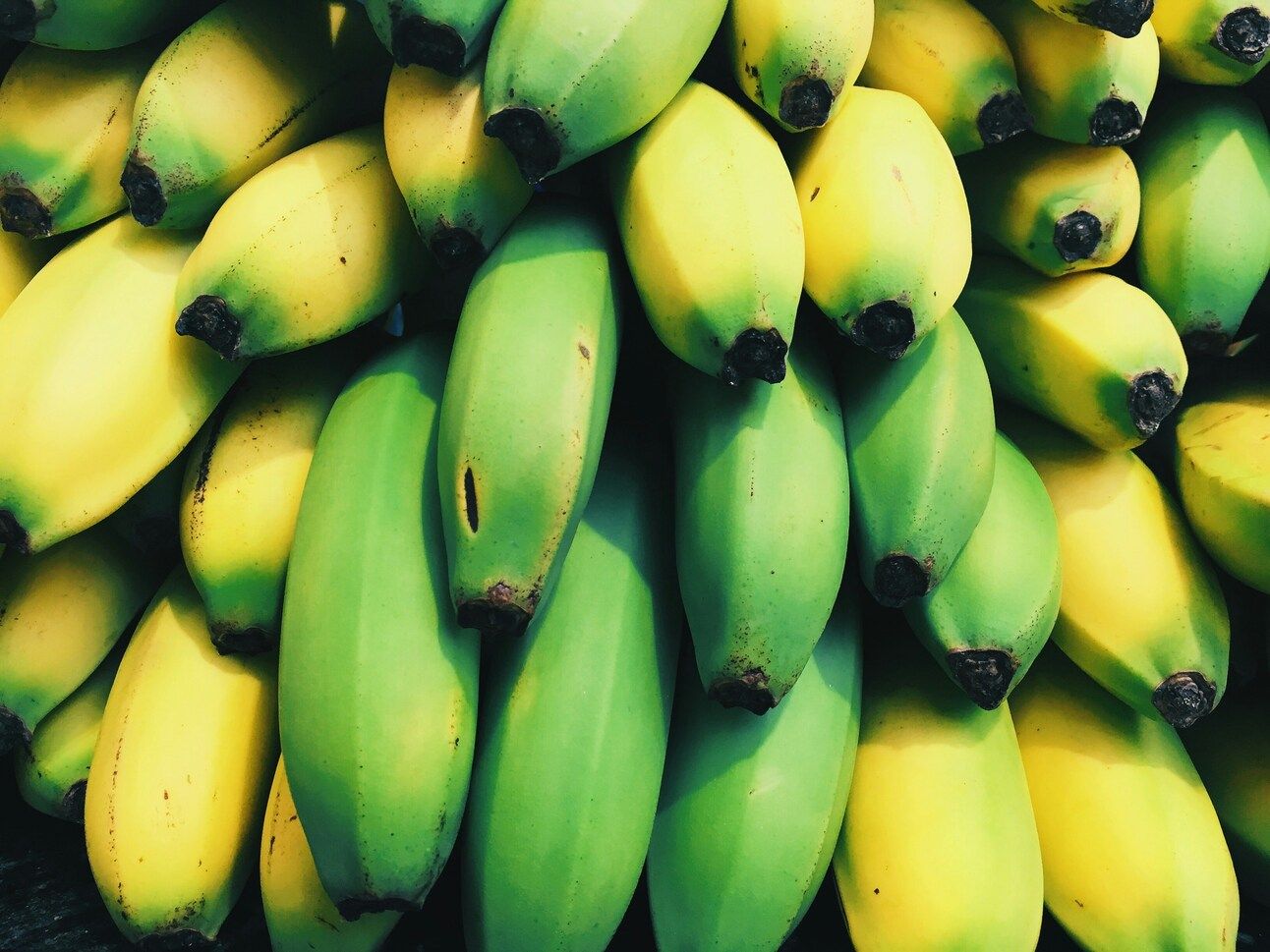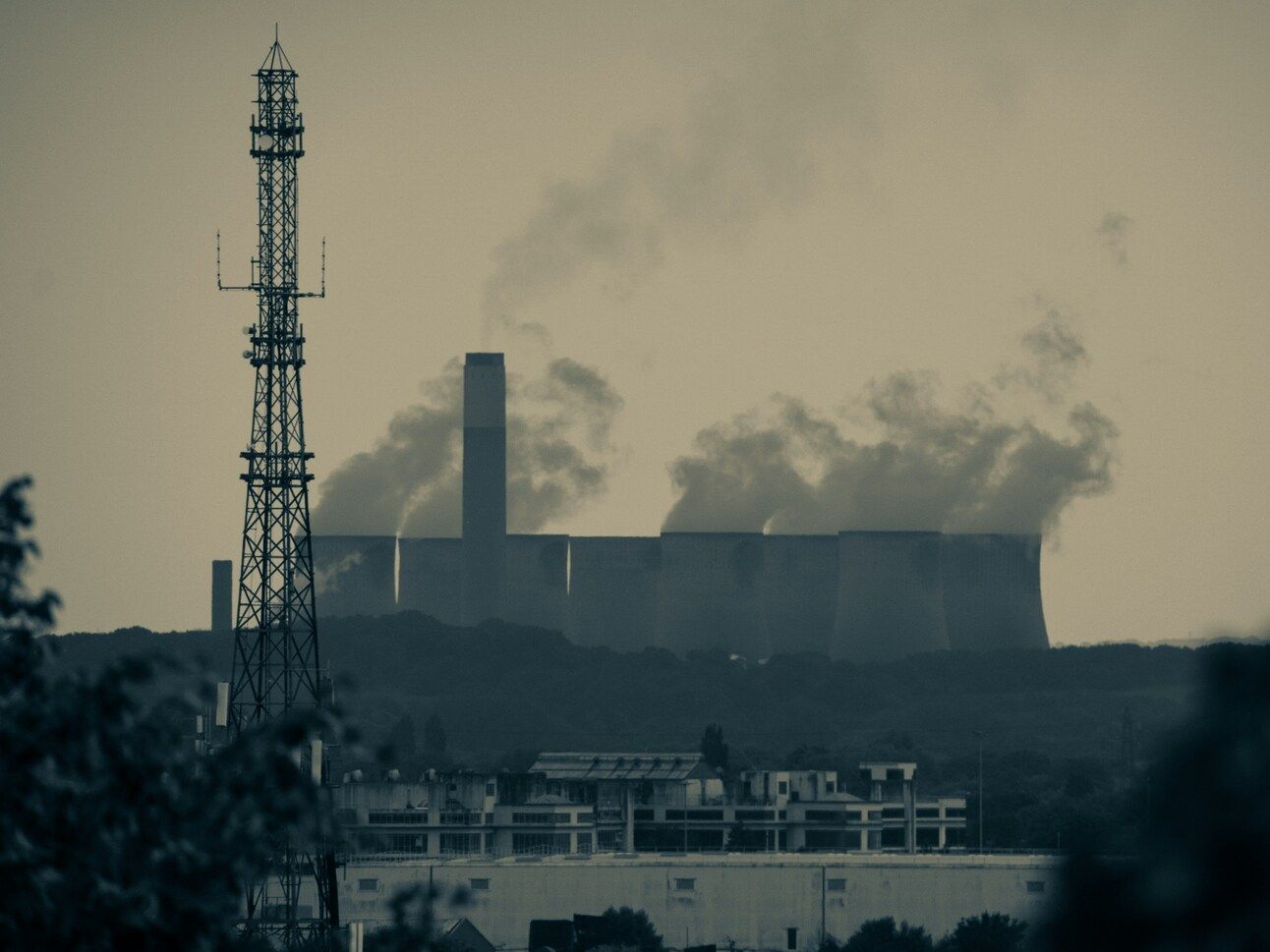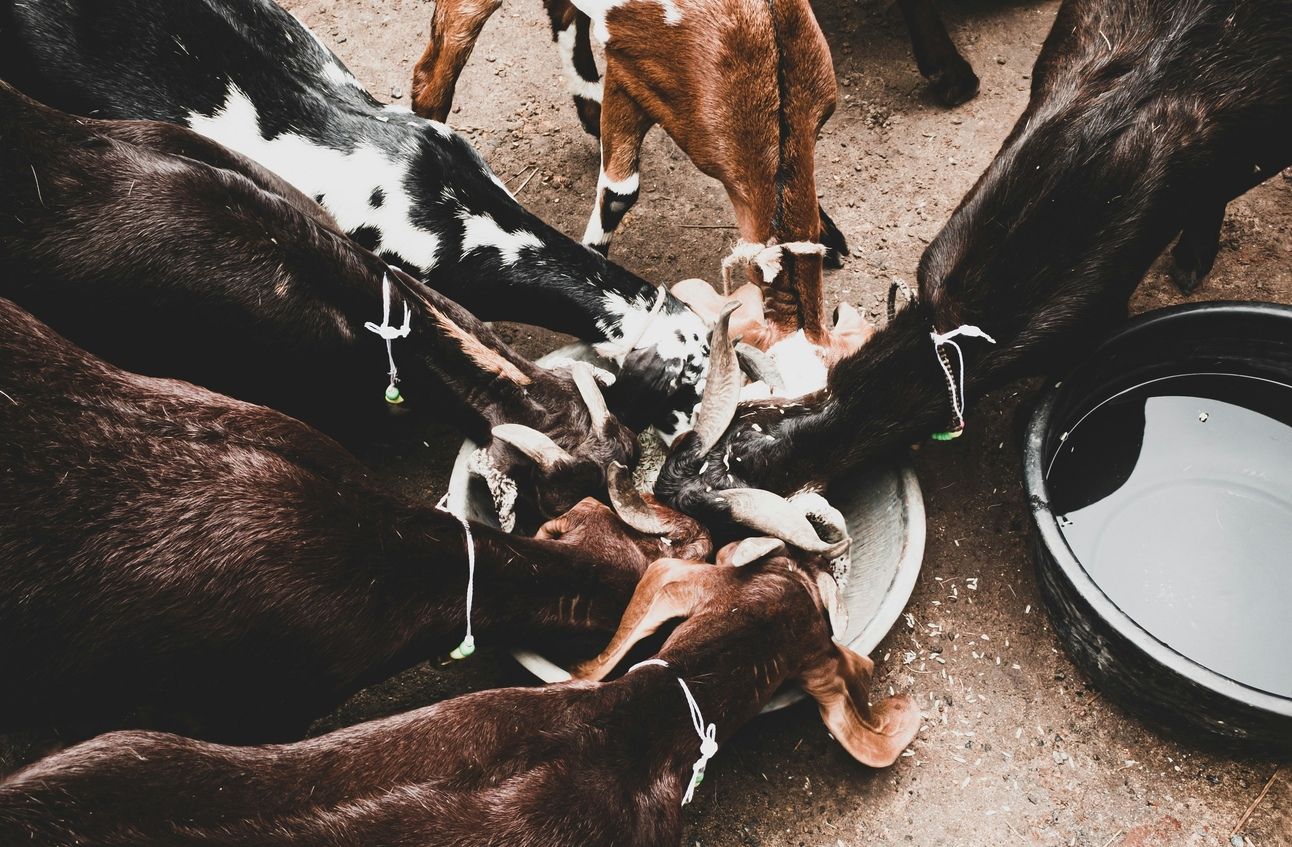- Soma Mater's Newsletter
- Posts
- SOMA Newsletter
SOMA Newsletter

Welcome to the SOMA MATER weekly newsletter.
At SOMA MATER, we specialize in delivering comprehensive research and advisory services with a focus on Food & Water Security and Net Zero Transition in the MENA Region. In order to support our subscribing clients in navigating these topics and understanding the regional narrative, we produce monthly Food and Water Security and Net Zero Transition Intelligence Reports, along with our in-depth analysis and insights.
This weekly newsletter highlights the top 3 stories from the past week in Food and Water Security and Net Zero transition, along with SOMA MATER's analysis and perspective.
Which country is currently the only one in the world to achieve complete food self-sufficiency across all seven major food groups?
How is Emirates Water and Electricity Company (EWEC) transforming its existing power and water plants to support Abu Dhabi's sustainability goals, and what are the key benefits of this strategy?
What are the main challenges facing Egypt's agricultural sector and how do they impact the country's food security?
Sustainably yours,
The SOMA team
The World's Food Security Report Card: Only One Perfect Score!
#FoodandWaterSecurity

A recent study by researchers from the University of Göttingen and the University of Edinburgh give insights into global food self-sufficiency across 7 food groups: fruits, vegetables, dairy, fish, meat, legumes/nuts/seeds, and starchy staples. The analysis of 186 countries found that only Guyana currently achieves complete self-sufficiency across all food groups, while China and Vietnam follow closely behind, meeting requirements in 6 out of 7 categories.
This paints a concerning picture of global food security, with just one-seventh of countries achieving self-sufficiency in five or more food groups. The situation is critical in the MENA region, where countries like the UAE, Qatar, and Yemen struggle to meet self-sufficiency in any food group. The Gulf Cooperation Council (GCC) manages to maintain self-sufficiency only in meat production, while no economic union worldwide produces sufficient vegetables for its population.
Global developments show positive trends in global food markets, with the FAO Food Price Index recently reporting a 0.8% decrease in global food commodity prices. This is attributed to falling cereal, sugar, and vegetable oil prices. The MENA region is still heavily dependent on wheat imports, with countries like Jordan importing over 90% of their wheat needs. Major importers like Egypt, Algeria, Morocco, and Saudi Arabia are projected to import 32 million tons of wheat in 2024-25, managing this through extensive tender processes. Modern storage solutions, particularly steel silos, have been crucial, reducing grain losses by 40-50% and improving storage capacity, with countries like Egypt receiving World Bank support for modernization efforts.
SOMA’s Perspective:
Wheat's dominance in global food systems is undeniable, particularly in the MENA region. The region's history of wheat cultivation in the Fertile Crescent has perhaps led to an over-reliance on this singular grain. Though wheat's nutritional profile and storage advantages are compelling - offering an optimal blend of carbohydrates, proteins, and micronutrients - the region's dependence on wheat imports creates vulnerabilities. This study's findings point to a need for trade relationship diversification. Alternative grains such as millet, sorghum, and other indigenous cereals offer viable, often overlooked alternatives to wheat. These could provide relief in food systems, particularly given the mounting challenges of climate change and geopolitical tensions.
Sources:
Old Plants, New Tricks: How EWEC is Giving Power Plants a Second Life
#NetZeroTransition

Emirates Water and Electricity Company (EWEC) is Abu Dhabi's sole water and electricity provider. It is implementing a strategy to recycle existing power and water plants. This approach is exemplified by the extension of the Shuweihat S1 power and water plant's PPA by 15 years. It involves decommissioning its water desalination operations and converting it into a natural gas-fired open-cycle power plant. Originally commissioned with 1.5 GW of power capacity, the plant will now operate on-demand with a reduced capacity of 1,130 MW.
This strategy offers benefits including improved system efficiency through redirected steam usage, significant cost savings by avoiding new plant construction, and enhanced grid stability to accommodate renewable energy integration. EWEC is also transitioning to reverse osmosis technology for water production, replacing conventional thermal desalination methods as part of their decarbonization efforts.
EWEC's Statement of Future Capacity Requirements 2024-2030 projects that over 7 GW of power and more than 2 million m³/day of water capacity will reach the end of existing contracts by 2037. The reconfiguration plan will extend these plants' lifespans, supporting the UAE's Energy Strategy 2050. This national strategy aims to boost renewable and nuclear energy adoption while improving energy efficiency. Goals include reducing emissions to achieve net zero in water and energy by 2050, 42-45% better energy efficiency versus 2019, and AED 100 billion in savings alongside sustainable growth.
SOMA’s Perspective:
The shift to a demand-responsive system marks a shift from traditional continuous operation. By maintaining power generation while ending heat-based desalination, EWEC balances infrastructure use with efficiency. Though still unproven, this approach shows promise for sustainable energy transition in line with UAE's 2050 strateg
Sources:
Desert Hot Topic: Egypt's Growing Food Security Challenge
#FoodandWaterSecurity

Egypt, a country with a current population of 107 million, faces mounting challenges in its agricultural sector, which contributes 14.5% to GDP and employs 28% of the workforce. Its agricultural capacity is constrained by limited arable land - only 4.1% of total land area - and dependence on the Nile River. This is coupled with high inflation rates of around 40% in 2024 and significant foreign debt projected to absorb approximately 60% of the 2024/25 national budget.
The agricultural sector consumes 80% of the country's strained water resources, with per capita water availability projected to decline to 350 cubic meters by 2050. The Nile Delta, which produces three-fifths of Egypt's food, is particularly vulnerable to sea-level rise and is expected to lose 30% of its food production capacity by 2030 due to salinization and inundation. The country heavily relies on food imports, which account for 40-50% of its food supply.
The livestock sector exemplifies these challenges, with rising feed prices comprising 60-70% of total production costs. While the Ministry of Agriculture has recently implemented market stabilization measures during Eid al-Adha, such as supplying locally raised livestock at reduced prices through farm networks, the sector continues to struggle with climate-related stress. Farmers are adapting by providing well-ventilated shaded areas for livestock, but meeting domestic demand while stabilizing market prices remains a challenge.
SOMA’s Perspective:
SOMA believes that Egypt's food security challenges represent a regional dynamic where food production and imports are linked in a three-pronged paradigm: conflict, climate change, and economic volatility. These form a complex web of interdependencies that shapes the MENA region's food security landscape. When conflict disrupts trade or climate events strain production, economic shocks follow. Similarly, economic pressures can exacerbate regional tensions. This demands a nuanced approach: while strategic imports offer immediate relief, strengthening local production capabilities also provides resilience. The region's food security will increasingly depend on managing these interlinked variables.
Sources:
SOMA MATER is writing Intelligence Reports on the topics of Food and Water Security and Net Zero Transition. If you’d like to know more, contact us through the link below: